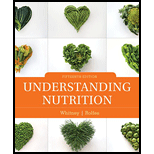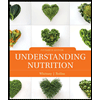
Concept explainers
How might people from different countries view the risks and benefits of
To determine: How people from different countries might view the risks and benefits of biotechnology.
Concept introduction: Biotechnology is a broad field or a multidisciplinary branch of biology that employs the development of new technologies in the field of biology for the well being of humans.
Explanation of Solution
Over the past decade, rapid progression occurred in the field of biotechnology. New organisms were formed and the existing organisms were modified to create effective, pervasive, and inexpensive products to serve the humans and their society. The living organisms are modified to produce effective therapeutic agents, diagnostic and preventive agents, bio-based pest control products, and environmental cleaners (bioremediation), to maintain and improve the health of humans and their surroundings.
Although biotechnology has great appreciation, different people have different perception on biotechnology. Establishment of novel trends in biotechnology employs microorganisms and this paves the way for many safety issues. Major challenges involved in biotechnology are ethical issues and safety regarding the genetically modified food, pharmaceutical products, and potential risks involving pest control products.
Want to see more full solutions like this?
Chapter 19 Solutions
Understanding Nutrition (MindTap Course List)
- We each carry 20,000 genes in our genome. Genes can be patented, and over 6,000 human genes have been patented. Do you think that companies or individuals should be able to patent human genes? Why or why not?arrow_forwardIn what way has biotechnology had an impact on agriculture in the United States?arrow_forwardAlthough it is well known that X-rays cause mutations, they are routinely used to diagnose medical problems, including potential tumors, broken bones, and dental cavities. Why is this done? What precautions need to be taken?arrow_forward
- Gene therapy involves: a. the introduction of recombinant proteins into individuals b. cloning human genes into plants c. the introduction of a normal gene into an individual carrying a mutant copy d. DNA fingerprinting e. none of thesearrow_forwardWhat is a genetically modified organism (GMO)? a. a plant with certain genes removed b. an organism with an artificially altered genome c. a hybrid organism d. any agricultural organism produced by breeding or biotechnologyarrow_forwardThe study of how genes are transferred from parents to their children and the role of genes in health and disease is known as ________________. cytology geneticsarrow_forward
- Which of the following best describes the process of DNA sequencing? a. DNA is separated on a gel, and the different bands are labeled with fluorescent nucleotides and scanned with a laser. b. A laser is used to fluorescently label the nucleotides present within the DNA, the DNA is run on a gel, and then the DNA is broken into fragments. c. Nucleotides are scanned with a laser and incorporated into the DNA that has been separated on a gel, and then the DNA is amplified with PCR. d. Fragments of DNA are produced in a reaction that labels them with any of four different fluorescent dyes, and the fragments then are run on a gel and scanned with a laser. e. DNA is broken down into its constituent nucleotides, and the nucleotides are then run on a gel and purified with a laser.arrow_forwardWhat Are Clones? Cloning is a general term used for whole organisms and DNA sequences. Define what we mean when we say we have a clone.arrow_forwardWhat impact has recombinant DNA technology had on genetics and society?arrow_forward
- Is gene transfer a form of eugenics? Is it advantageous to use gene transfer to eliminate some genetic disorders? Can this and other technology be used to influence the evolution of our species? Should there be guidelines for the use of genetic technology to control its application to human evolution? Who should create and enforce these guidelines?arrow_forwardYou are a genetic counselor, and your patient has asked to be tested to determine if she carries a gene that predisposes her to early-onset cancer. If your patient has this gene, there is a 50/50 chance that all of her siblings inherited the gene as well; there is also a 50/50 chance that it will be passed on to their offspring. Your patient is concerned about confidentiality and does not want anyone in her family to know she is being tested, including her identical twin sister. Your patient is tested and found to carry a mutant allele that gives her an 85% lifetime risk of developing breast cancer and a 60% lifetime risk of developing ovarian cancer. At the result-disclosure session, she once again reiterates that she does not want anyone in her family to know her test results. a. Knowing that a familial mutation is occurring in this family, what would be your next course of action in this case? b. Is it your duty to contact members of this family despite the request of your patient? Where do your obligations lie: with your patient or with the patients family? Would it be inappropriate to try to persuade the patient to share her results with her family members?arrow_forwardSCIENCE, TECHNOLOGY, AND SOCIETY Imagine that you are a genetic counselor. What advice or suggestions might you give in the following situations? (a) A couple has come for advice because the woman had a sister who died of Tay-Sachs disease. (b) A young man and woman who are not related are engaged to be married. However, they have learned that the mans parents are first cousins, and they are worried about the possibility of increased risk of genetic defects in their own children. (c) A young womans paternal uncle (her fathers brother) has hemophilia A. Her father is free of the disease, and there has never been a case of hemophilia A in her mothers family. Should she be concerned about the possibility of hemophilia A in her own children? (d) A 20-year-old man is seeking counseling because his father was recently diagnosed with Huntingtons disease. (e) A 45-year-old woman has just been diagnosed with Huntingtons disease. She says she will not tell her college-age sons because of the burden it will place on them. Given that the woman, not her sons, is your client, do you have a duty to inform the sons? Explain your reasoning.arrow_forward
 Understanding Nutrition (MindTap Course List)Health & NutritionISBN:9781337392693Author:Eleanor Noss Whitney, Sharon Rady RolfesPublisher:Cengage Learning
Understanding Nutrition (MindTap Course List)Health & NutritionISBN:9781337392693Author:Eleanor Noss Whitney, Sharon Rady RolfesPublisher:Cengage Learning Human Heredity: Principles and Issues (MindTap Co...BiologyISBN:9781305251052Author:Michael CummingsPublisher:Cengage Learning
Human Heredity: Principles and Issues (MindTap Co...BiologyISBN:9781305251052Author:Michael CummingsPublisher:Cengage Learning Biology (MindTap Course List)BiologyISBN:9781337392938Author:Eldra Solomon, Charles Martin, Diana W. Martin, Linda R. BergPublisher:Cengage Learning
Biology (MindTap Course List)BiologyISBN:9781337392938Author:Eldra Solomon, Charles Martin, Diana W. Martin, Linda R. BergPublisher:Cengage Learning Concepts of BiologyBiologyISBN:9781938168116Author:Samantha Fowler, Rebecca Roush, James WisePublisher:OpenStax College
Concepts of BiologyBiologyISBN:9781938168116Author:Samantha Fowler, Rebecca Roush, James WisePublisher:OpenStax College





